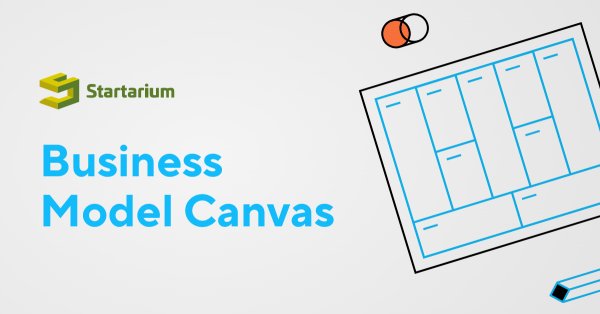As you grow, your business challenges diversify — luckily, so do your options when you want to scale up. At this stage, it's good to know that you can access financial-banking tools that were not available up to this point.

Some help you build relationships with new business partners, others are financing tools that could help you when you are focused on growth - such as letters of credit, letters of bank guarantee, leasing and factoring.
Letters of credit
Letters of credit are payment instruments that influence operational activity. Here are the forms you can find them in and how they can help you. There are two types of letters of credit:
-
The documentary letter of credit is a payment commitment of a bank who's client buys certain products or services, based on documents that certify the fulfillment of certain obligations.
-
These documents are sent through the banking circuit: from the seller's bank to the credit institution with which the buyer works. The parties of a documentary letter of credit are the applicant, the issuing bank, the beneficiary's bank and the beneficiary.
-
This payment instrument is the most common one offered by the local banks and offers more security for both the buyer and the seller.
-
Basically, the buyer's money does not leave the bank account until the seller presents evidence that it has fulfilled its obligations, i.e. invoices, inspection certificates, certificates of origin or shipping documents, etc.
-
The stand-by letter of credit combines the terms of a letter of bank guarantee with those of a documentary letter of credit. Thus, the issuing bank undertakes to pay the beneficiary, if the applicant does not fulfill its obligations.
-
The stand-by letter of credit is a bank guarantee issued in the form of a letter of credit, its objective being to guarantee the execution of a contractual obligation (e.g.: proper performance of the contract, payment of the value of the delivered goods, return of the down payment, payment of a loan installments, participation in auctions, etc. ).
-
The issuing bank undertakes to compensate the beneficiary financially, if the applicant fails to fulfill the obligations undertaken under the contract.
-
Unlike the documentary letter of credit, the stand-by letter of credit can only be enforced if the applicant fails to fulfill the obligation undertaken under the contract, and the beneficiary proves this with the documents mentioned in the letter of credit.
Both products are subject to international regulatory standards issued by the Paris International Chamber of Commerce.
Bear in mind that payments by either documentary or stand-by letter of credit are more expensive than payments by payment order. Moreover, the process of payment by letter of credit can be more time consuming, and the processing of letters of credit is also time-consuming for the banks involved. Nevertheless, letters of credit guarantee the safety of a transaction, ensure the creditworthiness of and give bargaining power to applicants - and this ultimately justifies the higher cost.
Letters of bank guarantee
If you are just starting out and you are in the process of finding the right partners for your business, one of the challenges will most likely be establishing a relationship of trust with them. What can you do to gain their trust?
Letters of bank guarantee are one possible answer to this question. They can make the startup inspire more confidence when it is about to start a new business partnership, participate in tenders or simply guarantee to a customer the good performance of the services or any other contractual commitments.
The banking institution which the startup works with basically undertakes an irrevocable written commitment guaranteeing the good performance of that startup. More concretely, the bank undertakes to pay a sum of money to the beneficiary, whether it is a business partner or a customer, if the startup fails to fulfill its obligations undertaken under a contract, i.e. the failure to perform all services or the delivery of only a part of certain goods for which the startup has already collected the entire contractual value.
What types of letters of guarantee are there?
-
Tender guarantee
-
Advance payment guarantee
-
Performance guarantee
-
Technical warranty guarantee
-
Loan guarantee
-
Customs duties and other budget liabilities guarantee
-
Payment guarantee
How can you get such a document?
A bank will condition the issuance of such letters on the existence of collateral deposits or other financing structures (even lines of credit), which the credit institution could use if the company it offers a guarantee to fails to comply with its obligations.
Some banks have the following eligibility conditions the applicants of such letters have to fulfill:
-
The company must have closed at least one financial year;
-
The company must have an operating profit, and the figures of the latest balance sheet must show that the business is growing;
-
The company must not have outstanding payments on any other contracted loans and must not have been registered with any major incidents in the Central Payment Incidents Register during the last six months;
-
The company must not have any delays of more than 15 calendar days in the repayment of the contracted loans, during the last year;
-
The company should not have active garnishments on its account and should not be registered with any outstanding budgetary debts.
Factoring
As entrepreneur, you are most likely familiar with the pressure of the invoices, of the lack of liquidities and the difficult collection of the receivables. In order to get a balanced cash flow for paying your suppliers and partners you can sometimes use factoring, which transforms invoices into cash.
This is a banking service through which companies can assign their receivables before their maturity, receiving cash from the banks in return. More precisely, if you have issued an invoice to a customer and the payment deadline of such invoice makes it difficult for you to pay other suppliers, you have the possibility to collect the value of the products or services invoiced earlier than on the agreed deadline.
When does factoring help you?
-
When the business has already took off and the company enters into commercial relations with new customers;
-
When your partners need longer payment deadlines than the ones you can afford;
-
When you experience frequent delays in the collection of the payments that are due to you;
-
What can it be used for?
-
More liquidities
-
Protection against the risk of non-payment
-
Invoice portfolio consulting services
What are its costs?
The costs of the operation are calculated by the banks according to the commercial relationships for which factoring operations are requested and are charged for the management, collection and monitoring of the risks related to the assigned debt.
The cost of the operation is usually influenced by the number of commercial relationships, the quality of the proposed debtors, the number of invoices and the turnover carried out covered by the factoring.
Some of the advantages of this financing are: access to specialized debt collection and management services; access to debtors evaluation, verification and monitoring services and the fact that it does not require the set-up of material securities.
Leasing for startups
Unforeseen expenses are very common in the life of a startup. Whether for another delivery car, new equipment to simplify production, or simply miscellaneous expenses generated by the fact that the business grows faster than anticipated and sometimes ends up requiring investments beyond the startup's current financial capacity.
In such situations, waiting a year, two or three until you meet the financial conditions imposed by banks for granting loans means, very likely, that your business will be at a standstill. For entrepreneurs who are not willing to wait and accept the limitation of the development of the startup, lease can be a solution.
Types of lease
There are two types of lease: capital lease and operating lease.
-
The main difference between the two is that, in the case of operating leases, there is no obligation to transfer ownership (and pay the residual value) at the end of the contract, as in the case of capital leases.
-
Another important difference is that, in operating leases, when you purchase a car, for example, the costs of the repairs, mandatory civil liability insurance for car owners and fully comprehensive car insurance policy are covered by the leasing company.
Are leases and bank loans the same thing?
No, they are not! When you get a loan, you become the owner of the purchased asset from day one. In the case of leases, this happens at the end of the contract if you exercise your lease option (option to buy). Differences exist also from an accounting point of view: with a loan, the tax-deductible expenses are the depreciation and the interest expenses, while with an operating lease the installments are treated as rent and are fully deductible.























